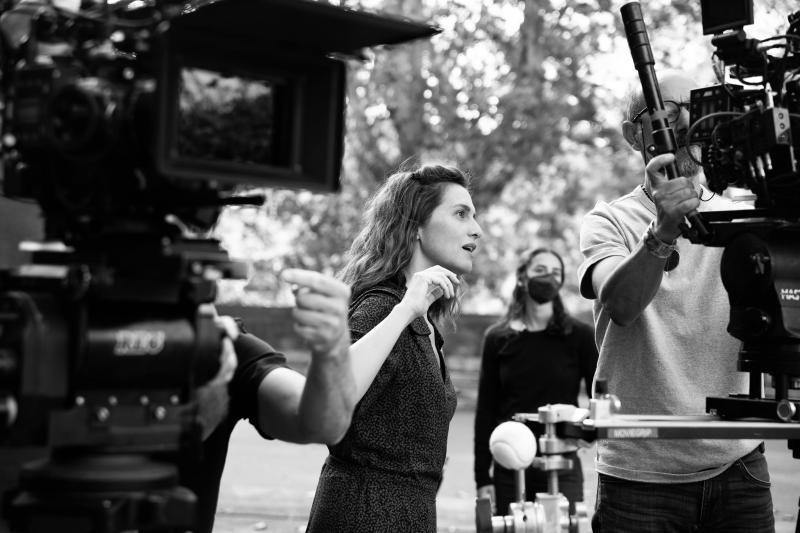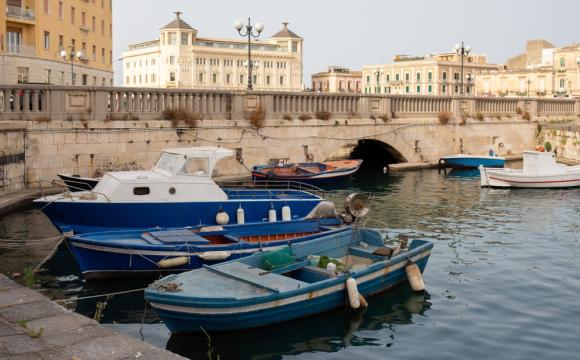“Barbiecore” was a buzzword for much of 2023 thanks to Greta Gerwig’s record-breaking summer blockbuster. But in Italy, a similar phenomenon took off in October that was less Barbiecore, more (Paola) Cortellesi.
Take it from Toni DeBella, the Senior Staff Writer here at Italy Magazine, who lives in what she describes as “a one-cinema hill town in Umbria where the three-screen theater is rarely full.” Then along came the playbill for Paola Cortellesi’s C’è ancora domani.
“Lines were out the door and new showtimes were added as filmgoers clamored to get in,” DeBella said.
The film is loosely neorealism-inspired but with a light comic touch (Cortellesi, who directed, co-wrote and starred, is best known as a comedian). Filmed in black and white, C’è ancora domani depicts the plight of an abused housewife in postwar Rome, on the eve of the 1946 referendum that gave women the vote. It was an instant smash in Italy after opening the 2023 Rome Film Festival in October and then grossing €1.6 million on its first weekend in theaters.
In a trajectory that surprised Cortellesi, who has said her expectations were low, the film went on to surpass both Barbie and Oppenheimer at the Italian box office and to become the most successful Italian title of the year by tickets sold (about 5.4 million). When it reached €32.4 million, it ousted Roberto Benigni’s Life is Beautiful (1997) from the list of the ten all-time highest-grossing films at the Italian box office — a group that includes international mega-hits such as Avatar, The Lion King and Titanic.
And that was in the final months of last year alone. If the renewed domestic and international attention on C’è ancora domani in recent weeks is any indication, the phenomenon is just getting started.
What comes next for C’è ancora domani?
Together with Matteo Garrone’s Io capitano, C’è ancora domani cleaned up at this year’s David di Donatello Awards, held in Rome on May 3. It took home six wins, including Best Directorial Debut, Best Original Screenplay, Best Lead Actress (Cortellesi) and Best Supporting Actress (Emanuela Fanelli).
The film also received the David Giovani Award, which was selected by a national jury of students in their last two years of secondary school. This sort of resonance with Italian teenagers has been particularly important to Cortellesi, who was inspired when she learned of young girls departing theaters after the film and commenting that they wanted to “practice freedom,” according to the Associated Press.
The wide appeal of the film across age groups and cultural lines hasn’t been lost on international market distributors. The Hollywood Reporter proclaimed C’è ancora domani a “global sales hit” barely a month after it premiered.
In late April of this year, the film opened across UK and Irish theaters (as There’s Still Tomorrow). And on June 7, the Sydney Film Festival will host its Australian premiere, followed by two more showings on June 8 and 10.
No release date in the United States has been announced at the time of writing, but Catia Rossi, head of international sales for Vision Distribution, told the Rome edition of The Hollywood Reporter back in November that the US market would be “a path we undertake over the long haul. We don’t want to get it wrong. There are several negotiating tables open, and several expressions of interest.”
Rumors have also been circulating in the Italian press that musician and actress Lady Gaga (Stefani Germanotta), who starred as fallen Italian socialite Patrizia Reggiani in 2021’s House of Gucci, is interested in pursuing an English-language remake.
Striking a chord
In an interview with the New York Times last December, Cortellesi attributed her film’s popularity to “having touched a raw nerve in the country.” Though much of the story pulls on Cortellesi’s talents as a comedian by trade, the film nonetheless treats heavy subjects including verbal, financial, physical and emotional abuse of her character, Delia, at the hand of her husband Ivano (played by Valerio Mastandrea). Its box-office run coincided with a particularly heated cultural moment as the murder of 22-year-old student Giulia Cecchettin by an ex-boyfriend dominated public discourse in Italy, prompting protests and calls for better relational and emotional education in schools.
The theme of improving conditions for the next generation looms large in C’è ancora domani, particularly in the relationship between Delia and her daughter Marcella (Romana Maggiora Vergano), who seems destined to end up trapped in a similar marriage until Delia, feeling emboldened by her new right to vote, dramatically intervenes.
Cortellesi, in a May interview with Jonathan Romney of the British Film Institute, alluded to a growing awareness of gender-based violence and abuse among Italians, but emphasized that her film highlights “what has changed and what has remained the same — and what has remained the same is the toxic mentality that, unfortunately, forces us to still be talking about these subjects.”













